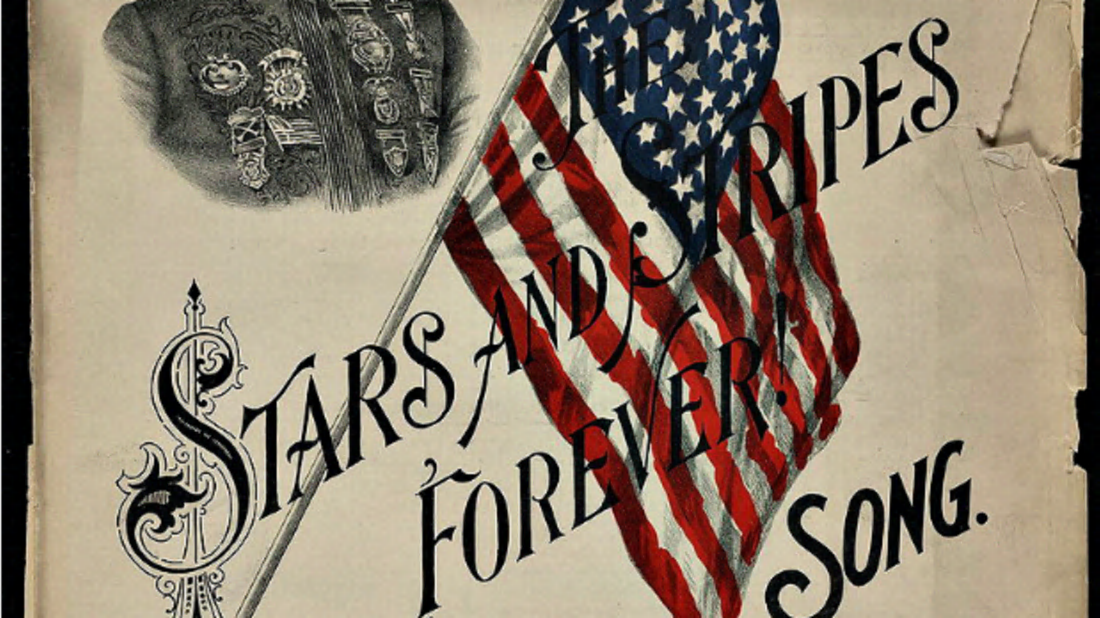

Sousa was not quite the one-dimensional genius popularly supposed. In this resistance to new electronic technologies that allowed many unseen people to enjoy his music whenever they wished, he was in sympathy with Irving Berlin. Although he did allow many recordings of the Marine Band around 1890, he later became strongly opposed to recordings of his own band until very late in his career. Sousa's opposition to recording his band and to radio broadcasts of his band could have been brought out(True, radio broadcasting had not been invented during the time period covered). However, after he saw a large backdrop of the Liberty Bell and coincidentally received a letter from his wife saying his son was marching in a parade honoring the Liberty Bell, he changed his mind. Also, it could have been brought out that his popular march "The Liberty Bell" was due to have quite a different name. But, we never find out that it is Christmas day, he is on a ship bound from Europe to America and is composing "The Stars and Stripes Forever" in his head. In the film, we briefly see Sousa on a ship talking to himself about an idea for a classic march. In addition to "The Washington Post", "Semper Fidelis" and "The Stars and Stripes Forever" prominently featured in the film, "The Thunderer", "The Liberty Bell", "King Cotton", "El Capitan" and "The Corcoran Cadets March" should be instantly recognizable. After all, he did compose more than 100 marches, of which at least 8 should be recognized by every American as classics. I was disappointed that more of Sousa's best known marches were not featured, nor the background of how he came to compose some of them revealed. However, they come across as basically a '50s show biz couple interjected into an 1890s historical film.

The inclusion of the fabricated young couple played by Robert Wagner and Debra Paget was understandable, serving to lighten things up from time to time as contrasted to Sousa's rather starchy exterior. He much reminds us of Frank Gilbreth in "Cheaper by the Dozen", another perfect role for him. Clifton Webb does indeed come across as the real Sousa and certainly appears much younger than his 60+ years. Having spent 6 years in orchestras and marching bands before graduating from high school, often playing Sousa's best known marches, I anticipated this partial biographical film.


 0 kommentar(er)
0 kommentar(er)
